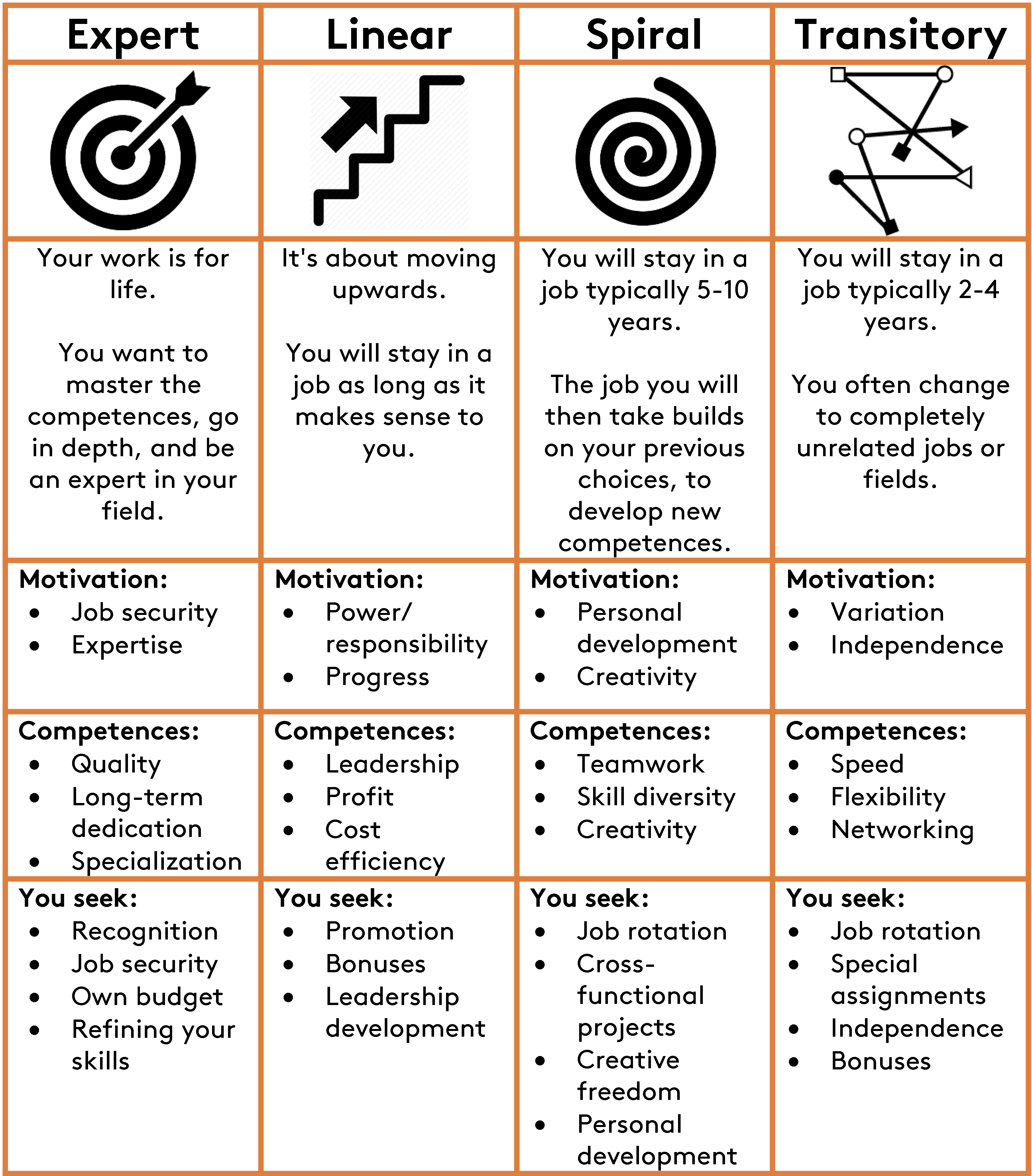What do you want to be when you grow up?
You’ve probably been asked this question at least once in your life. Whereas a standard reply for children can be “astronaut” or “zookeeper”, depending on the interests at the time, the question begs a much more pragmatic answer, the older we get. It can be tough if we find ourselves unsure what to answer when someone asks us “what’s next” or “where does this lead to”. But that does not mean there’s anything wrong. It’s completely OK to change our minds and enter new avenues. Our interests and aspirations change according to where we are in life. On the one hand, making plans can help you achieve your goals, but on the other hand, it can obstruct curiosity and being open to new possibilities.
Who can predict the future? And how can we expect ourselves to decide on a career path when we haven’t yet had the chance to try it out.
15 years ago, “digital marketing manager” or “social media specialist” would not have been possible answers to the questions above. Why not? Because these jobs did not exist.
Compared to what previous generations have been used to, the job market you’re entering will be characterized to a larger degree by short-term employment and switching jobs. These tendencies place different demands on the current and future generations, but they also open up new horizons. During your work life, you will maybe come across a job that does not exist at this very moment.
You define your career
What do you associate with the word ‘career’?
Visualize your thoughts: What does a career look like? How does it feel? It will look and feel different to us all, and there is not a definitive answer.
Researchers have compartmentalized different views of career into a model according to people’s motivations. See for yourself:

Different strokes for different folks
Most people want to be good at something they also find important and awesome, just like the expert. But maybe for a shorter period, like with the episodic career pattern. And this is perfectly fine. You are in charge of your work life. Just remember that your attitude or interests can change with time. Once in a while, revise and consider your career path.
Our backgrounds differ, and we have different understandings of what a career or work life should be. At the next family birthday party, you can bring the model with you and see what different takes on career we each have.
Ask yourself:
- Where do you see yourself in the model?
- How do you think your parents see career? Do you think their views are like yours? Maybe they consider career according to the expert pattern while their actual work life looks more like the expansive pattern?
Career is shaped by coincidences
It might be interesting for you to ask people you know, who have been on the job market for some time, how they got to where they are now. Did they follow a plan? Or was it coincidental?We’ll bet that, for most of them, the latter is the case. Their current position can be the result of sudden possibilities that proved to be more decisive in their journey than an initial long-term strategy did.
Being open to new opportunities can be a career strategy in its own right. This is an argument by John Krumboltz, an established career theorist. He has developed the following “recipe” for how to turn serendipity into opportunity:
1. Put yourself in situations where opportunities can arise.
Some examples:
- Attending events such as workshops, meetings, parties, fairs, etc.
- Meeting new people.
- Joining or engaging with communities within specific professions
- Say ‘yes’ to things you normally wouldn’t
2. Be attentive and recognize opportunities
Be aware of situations where opportunities can arise, or where you can create your own opportunities. Listen and show interest. It’s not a matter of being calculating, but rather it's about getting to know other people and for them to get to know you. Try to pick up on where you can both participate and contribute.
3. Taking initiatives you can benefit from
You might not benefit from your new network right off the bat. You may not walk away from your first job fair with a job opportunity on your hand. But who knows what happens after six months or in a few years? This is why you should continue to show up to events, say yes to new opportunities and stay in touch with people. Connect with someone on LinkedIn who you’ve had an interesting talk with. Invite them to a coffee meeting. Keep in touch so you know what that person is up to, and so they know what’s going on in your life.